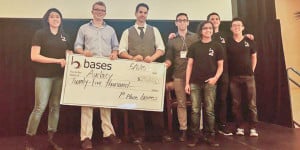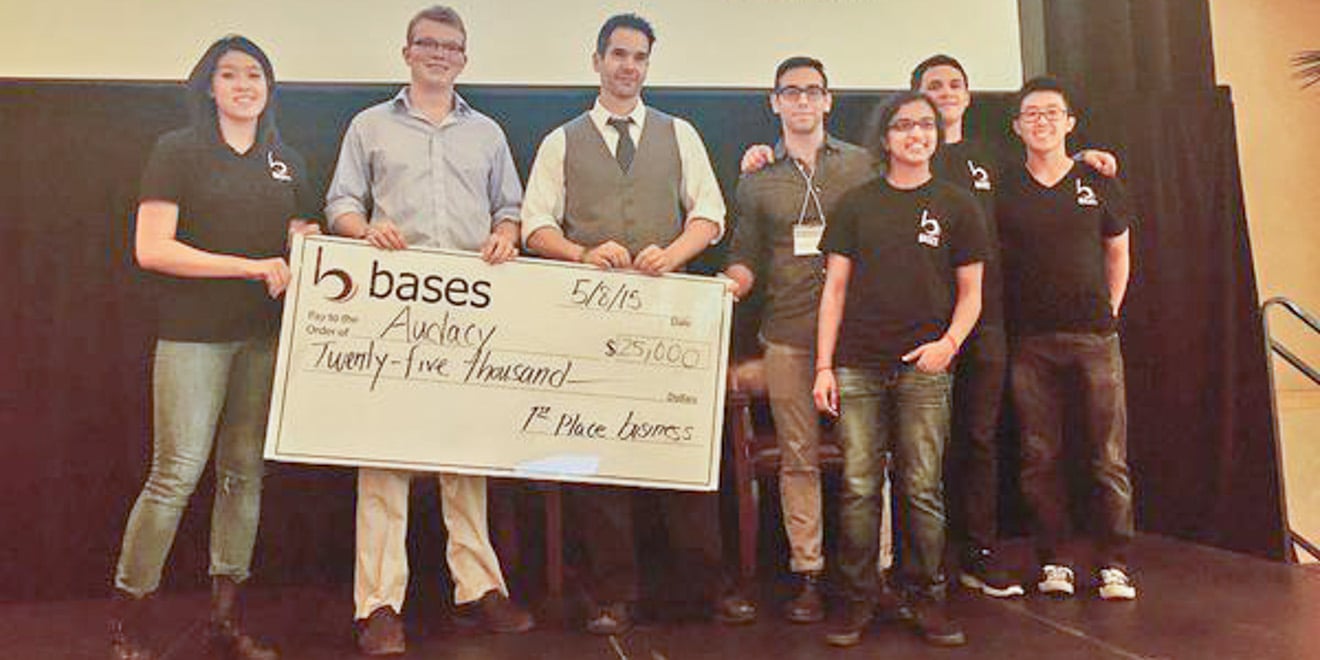
On Friday, May 8, the Business Association of Stanford Entrepreneurial Students (BASES) filled the Arrillaga Alumni Center with the clamor of pitches and prototypes made by aspiring Stanford entrepreneurs during the BASES Challenge Competition. In this two-decade-old annual competition, BASES awards $100,000 in prize money to the winning teams as determined by a panel of judges.
Of the 109 teams that went through the first round of judging, 51 teams were chosen for the showcase, representing various fields including enterprise, consumer products, medical technology, software and social impact.
At the start of the event, there was a public showcase that allowed for teams to demonstrate and present their ventures. This was followed by a fireside chat with Greg Schott M.B.A ’91, the CEO of Mulesoft. Mulesoft is valued at nearly one billion dollars, and its mission is to connect the world’s applications, data and devices.
Schott offered advice to aspiring entrepreneurs.
“I think it’s important to fail fast,” Schott said. “You see it all the time when people have amazing ideas, they sound so great until they hit the market. There is a fine balancing act between failing fast and persevering. Knowing when to quit and move on is important part.”
The event was concluded by an awards ceremony, with prizes awarded to the top three teams from business ventures and social ventures, category prizes and crowd favorite prizes.
The prizes were sponsored by a variety of technological companies such as Microsoft, Accenture, Oracle, Samsung and Dropbox.
The first place prize of $25,000 to the best business venture was awarded to Audacy, whose goal is to provide continuous communication to commercial spacecraft operators as a service. The $15,000 runner-up award was given to Aperture, and the $10,000 second runner-up was given to Xstream.
Category prizes of $1,500 in the categories of medical technology, enterprise and consumer products were awarded to Cerulean Robotics, White Light Medical and Eden respectively as well as a $500 crowd favorite prize to FirstStep.
Sumit Minocha ’17, whose team Cerulean Robotics developed a camera stabilization platform to track objects in dynamic environments, expressed his appreciation for the event.
“It was a blast getting support from fellow students and entrepreneurs,” Minocha said. “The vibe and atmosphere of the competition was infectious and it was awesome to be a part of it in addition to having my own venture to spearhead and see the fruits of.”
In the social venture category, first place of $20,000 went to Evimed, a group that developed a port protector device that attaches a needleless connector on a catheter hub to reduce central-line associated bloodstream infections. MitiHealth and Spectrum tied for second place in the category, each winning $12,500.
Unlike previous years where the teams were split into three categories, this year the competition was consolidated into one large event, leading to a reduction in the number of BASES members planning the event. Kristine Chen ’16, Michael Longoria ’16 and Danielle Dobos ’16 were in charge of organizing the event.
“There was basically one third the amount of people planning the event compared to previous years, which essentially meant more work for us,” Chen said.
Despite the effort involved, Chen valued the opportunity to give entrepreneurs a chance to showcase their talents and grow.
“Throughout the process you have people that express their gratitude and tell you how invaluable of an experience it is for them,” added Chen. “It’s gratifying to create that experience for someone and seeing the growth of the teams is really a spectacular thing, and it’s a wonderful feeling to be able to foster that.”
Contact Pallavi Krishnarao at pallavik ‘at’ stanford.edu
